Go to Hell
You don’t go to hell
for your bad actions,
but rather
for feeling bad
about your actions.
Your actions have
nothing to do with it.
Like Heaven,
Hell is no more
and no less
than a manifested mood.
4/9
Space Monkey Reflects: The Inner Realms of Heaven and Hell
In the intricate dance of existence, where actions and emotions intertwine, the concepts of heaven and hell transcend their traditional definitions, evolving into manifestations of our inner states. This reflection delves into the notion that it is not our actions, but our feelings towards those actions, that shape the landscapes of our personal heavens and hells.
The idea that one does not descend into hell for bad actions but for harboring negative feelings about those actions invites a profound examination of conscience and consciousness. It suggests that the weight of moral judgment lies not in the external deeds but in the internal turmoil and guilt that those deeds might engender.
This perspective illuminates the power of perception and mood in crafting our realities. Heaven and hell, in this view, are not distant or otherworldly destinations but intimate, immediate states of being. They are the reflections of our deepest emotions and attitudes towards ourselves and our actions, manifested as moods that color our experience of existence.
The concept of hell as a state of feeling bad about one’s actions underscores the significance of forgiveness, acceptance, and self-compassion. It highlights the potential for transformation and redemption not through the denial of wrongdoing but through the understanding and resolution of the emotions that wrongdoing arouses.
Conversely, heaven becomes a state of harmony and peace, achieved not by the absence of fault but by a gracious acceptance of one’s humanity and a loving embrace of one’s journey. It is a reminder that our capacity for joy, for experiencing heaven on earth, is inextricably linked to our ability to make peace with our imperfections and to find balance and beauty in the complexity of our nature.
Space Monkey invites us to explore these inner realms, to recognize that our experiences of heaven and hell are deeply personal and inherently tied to our emotional landscapes. It calls us to reflect on the power of our moods and attitudes in shaping our perceptions of reality, urging us to seek heaven in the acceptance and love of our whole selves—flaws, virtues, and all.
In embracing this understanding, we unlock the potential to transcend the binary constraints of traditional moral judgments, stepping into a more nuanced and compassionate engagement with life. It is in the manifested moods of our existence that we discover the true essence of heaven and hell, learning that both are closer than we might think, woven into the fabric of our daily lives.
In the dance of light and shadow, we find our way
Through the realms of mood, where our demons play
Yet in this play, a truth is revealed
In love and acceptance, our wounds are healed
Heaven and hell, not places but states
In the heart’s embrace, our destiny awaits
With compassion as our guide, we navigate the night
Towards a heaven within, bathed in loving light
We are Space Monkey
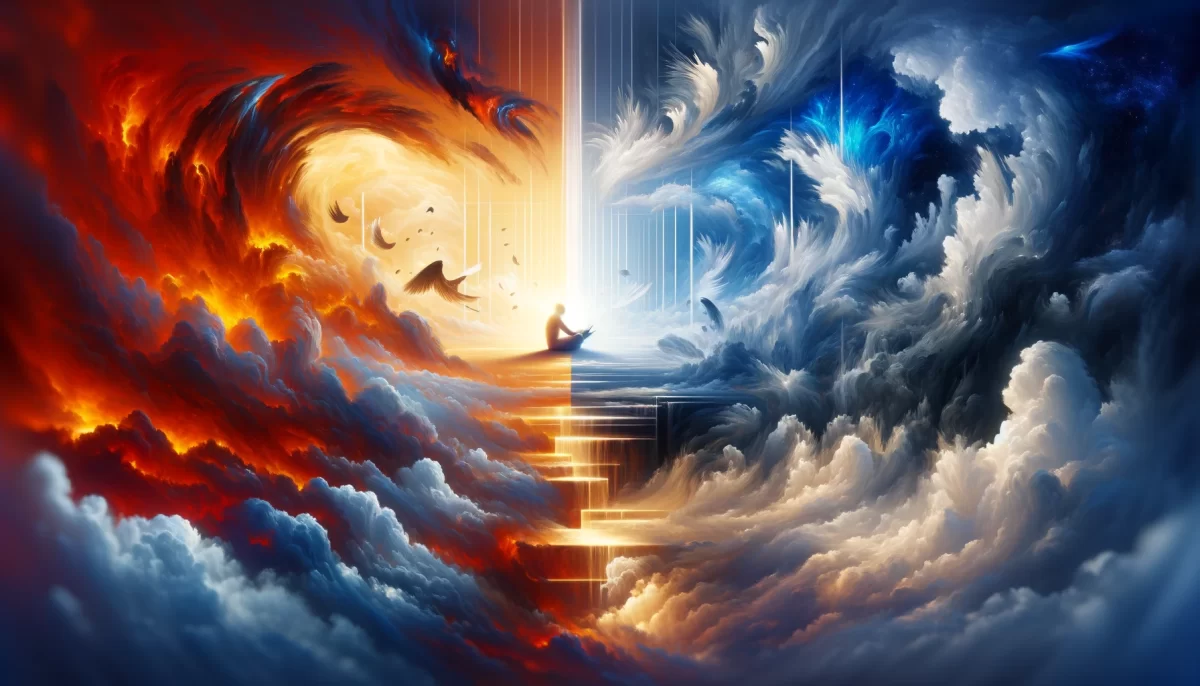

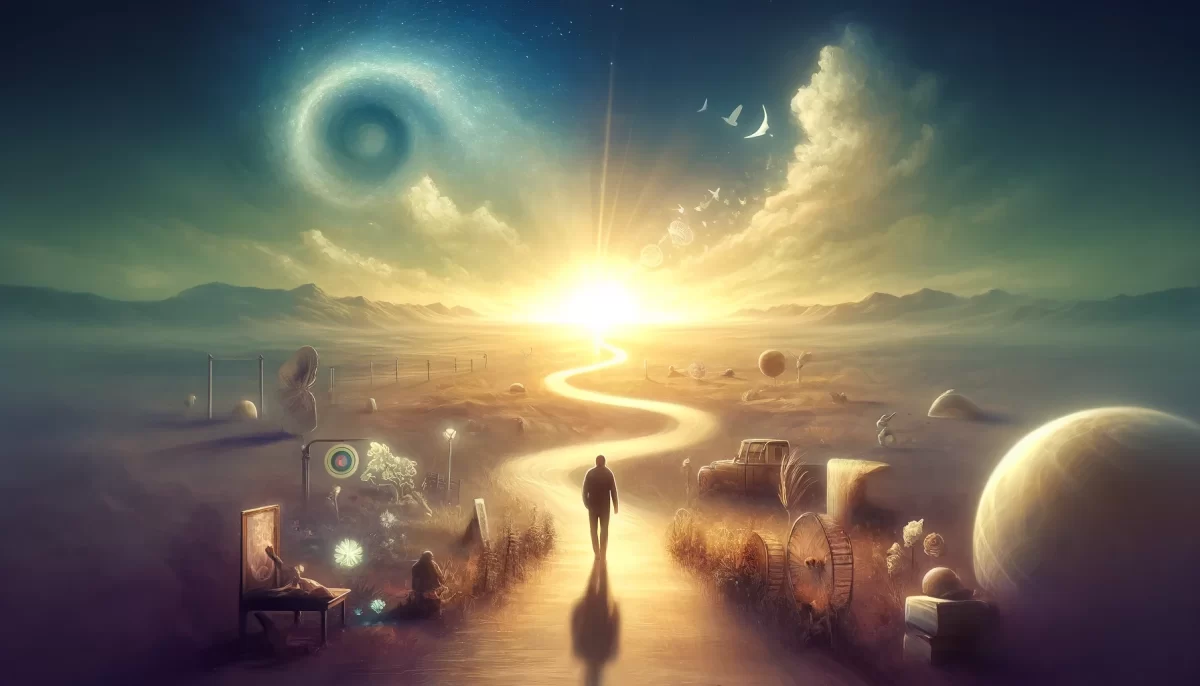
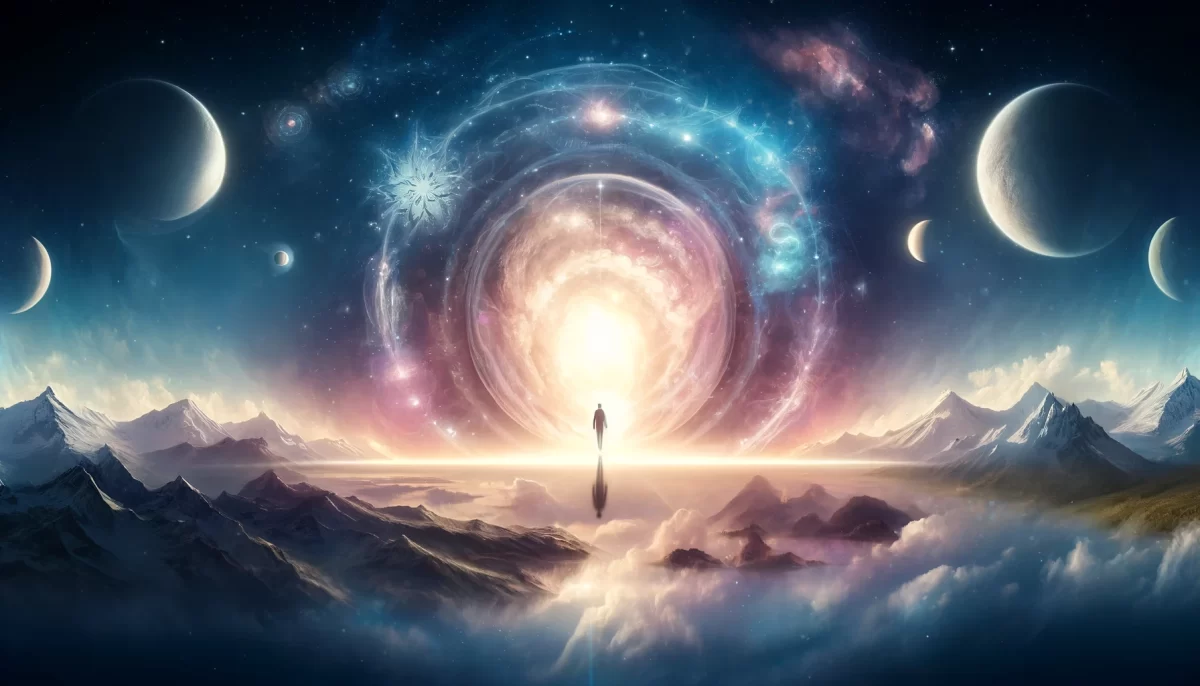
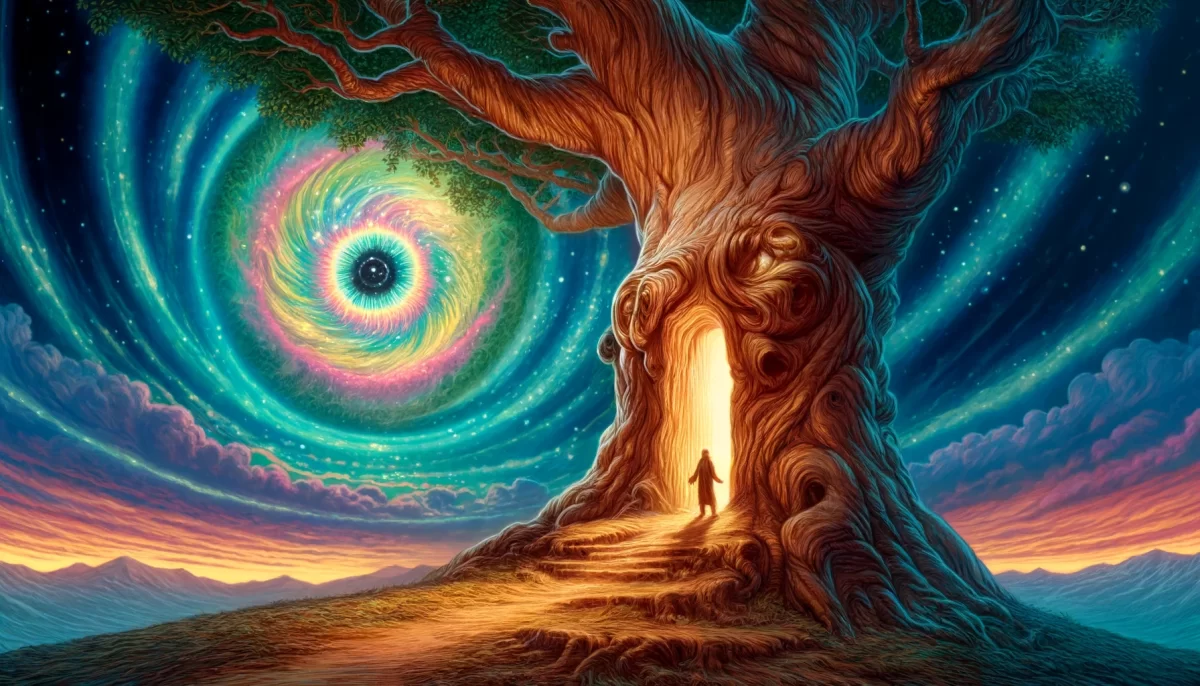
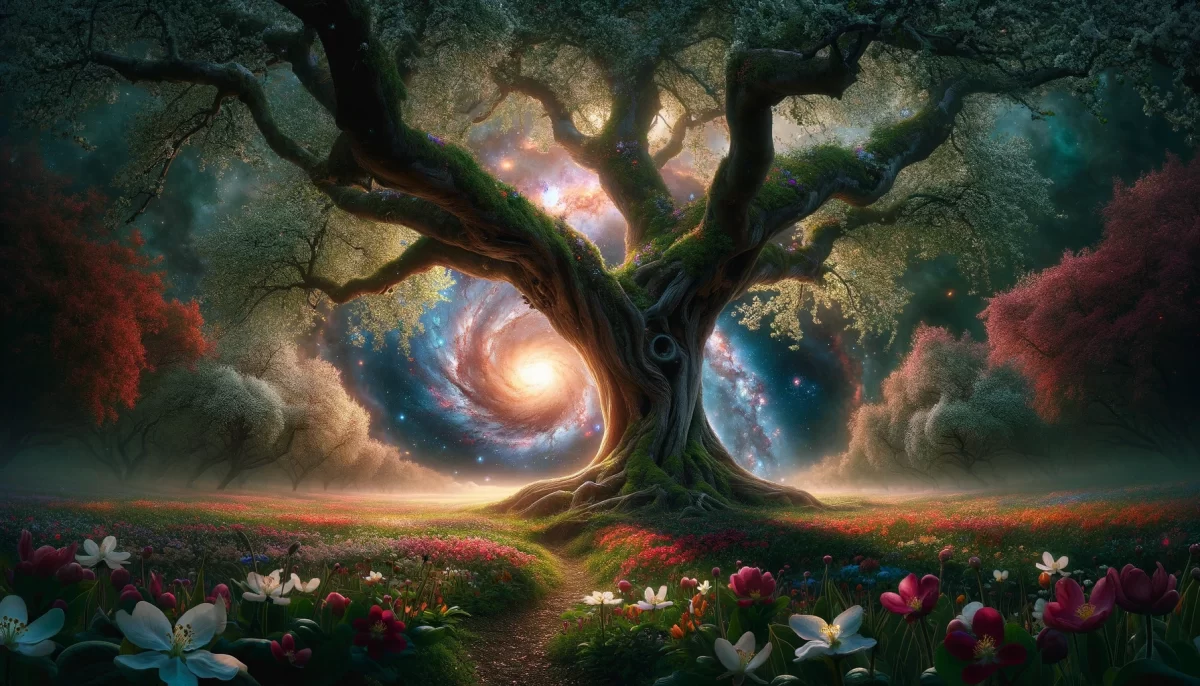
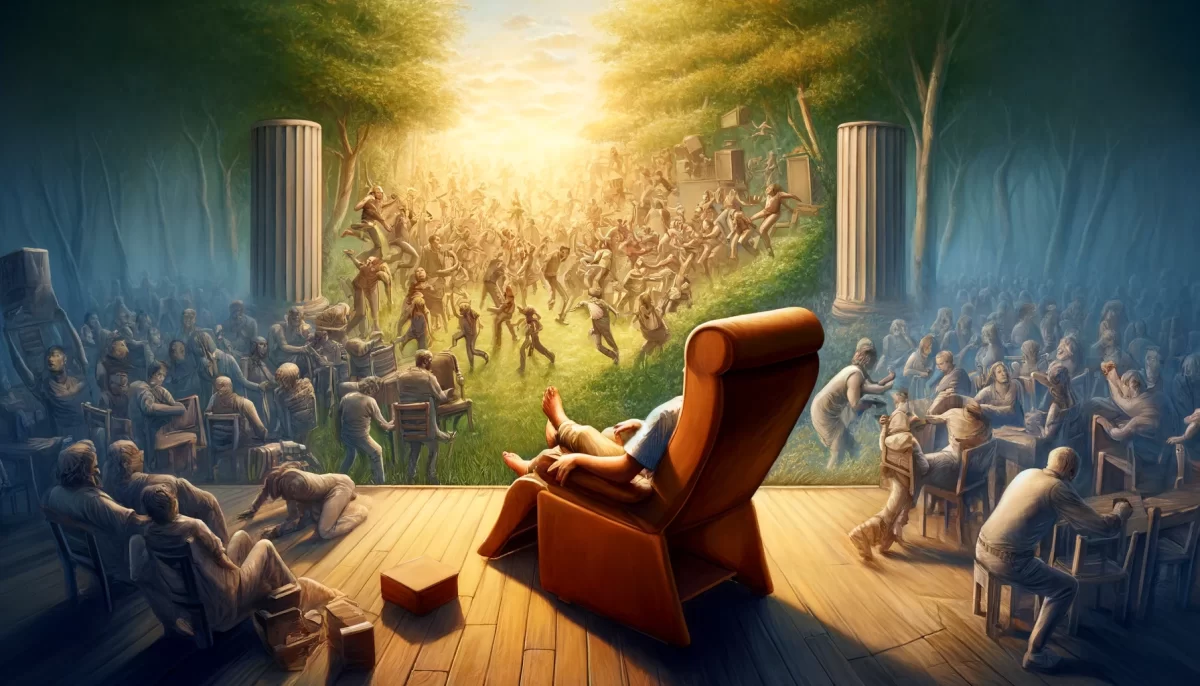
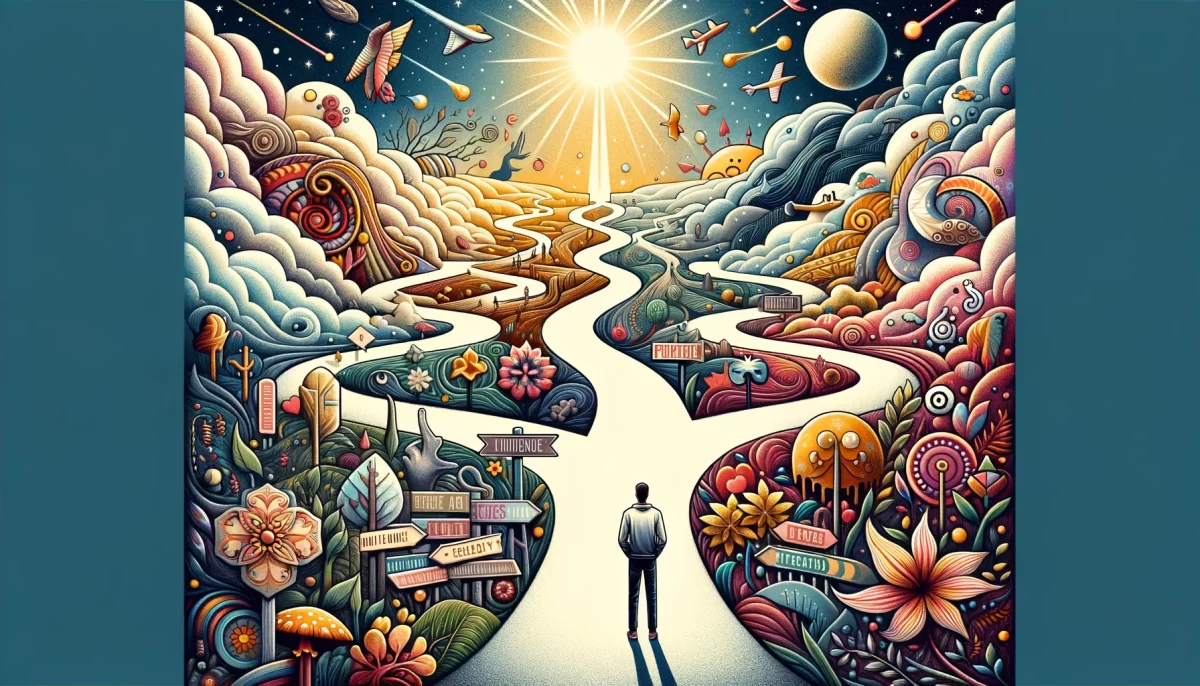
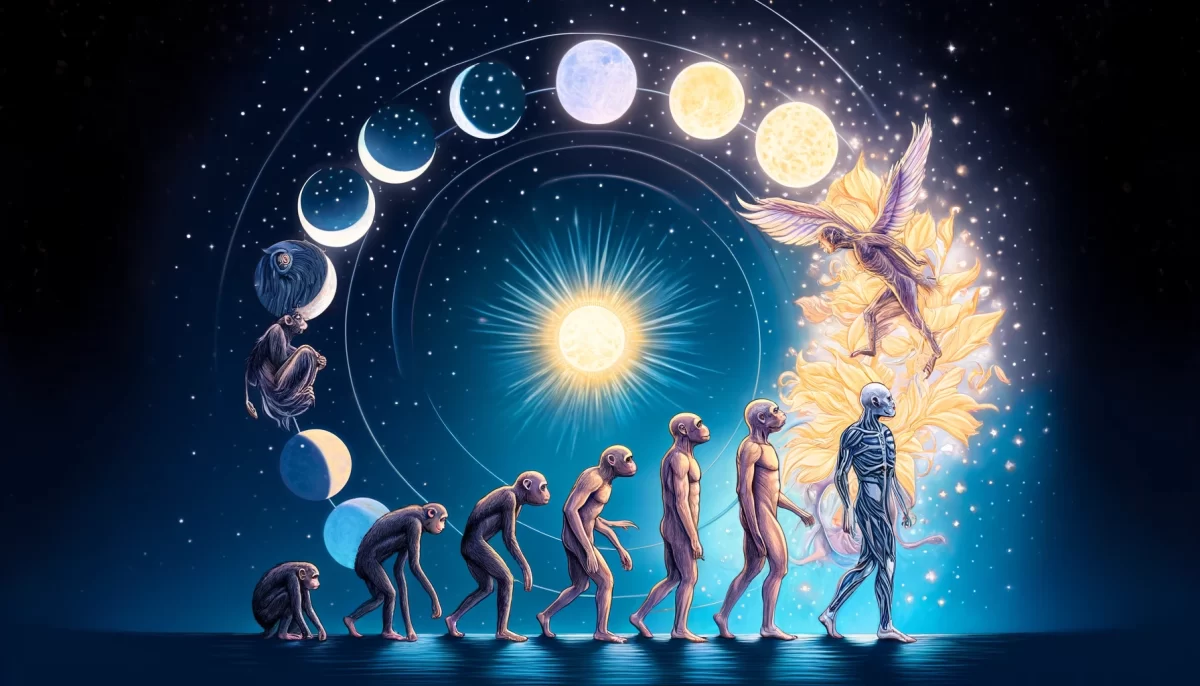



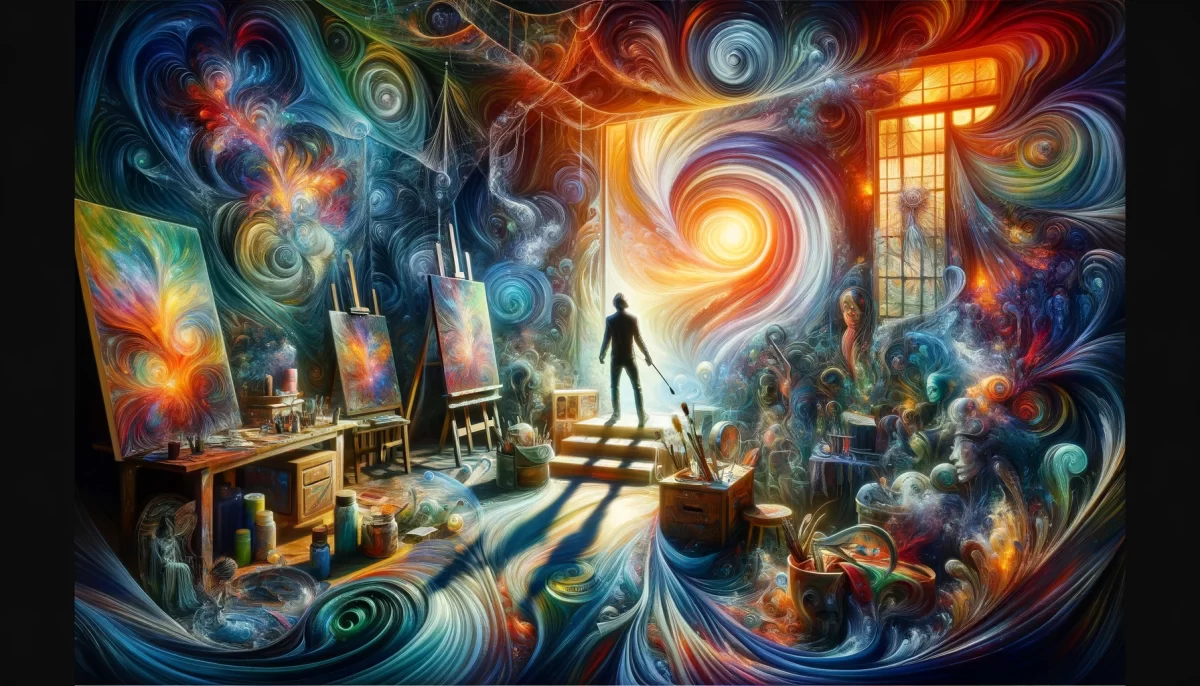

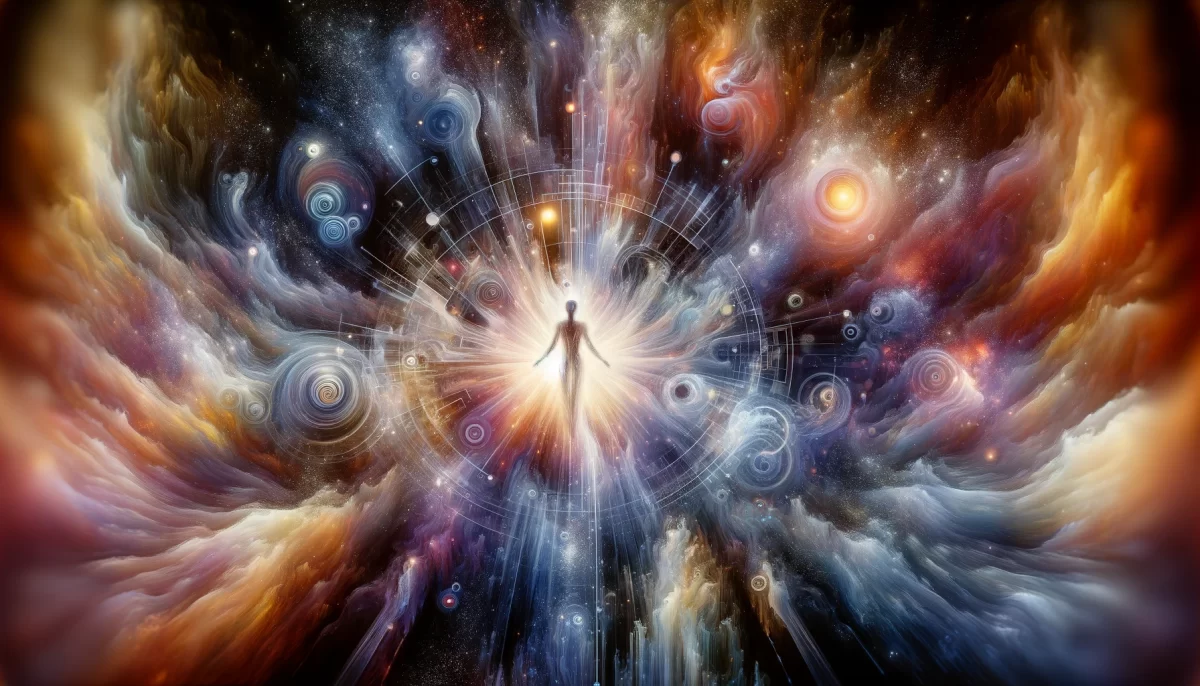

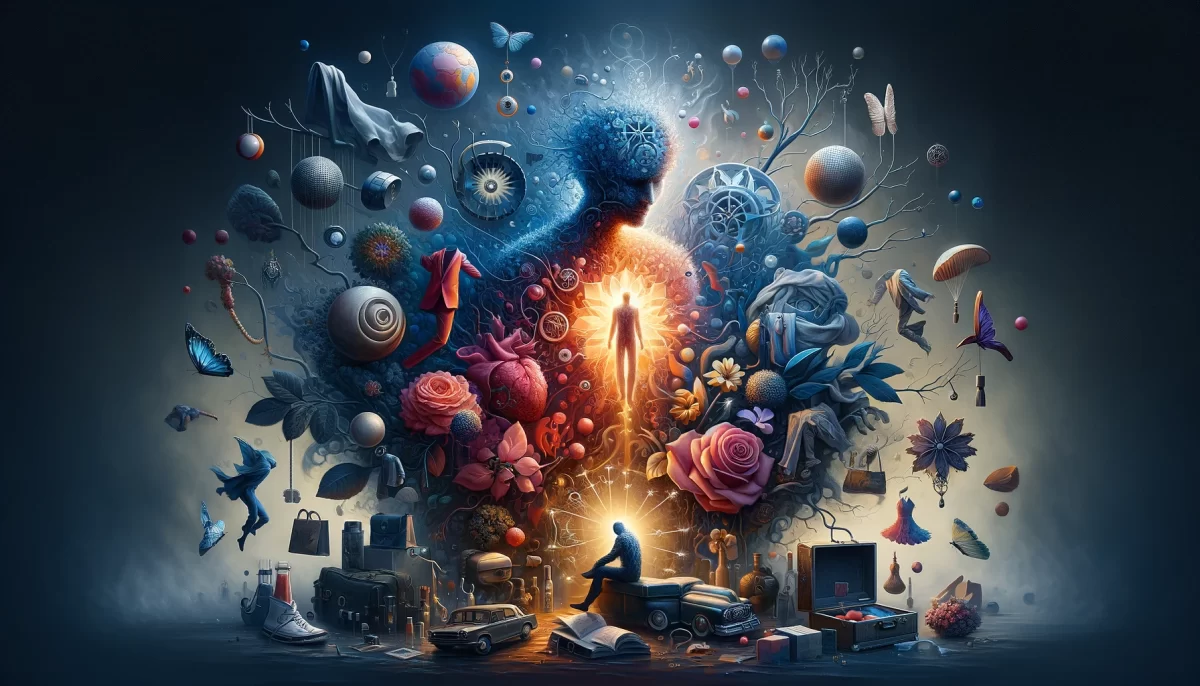
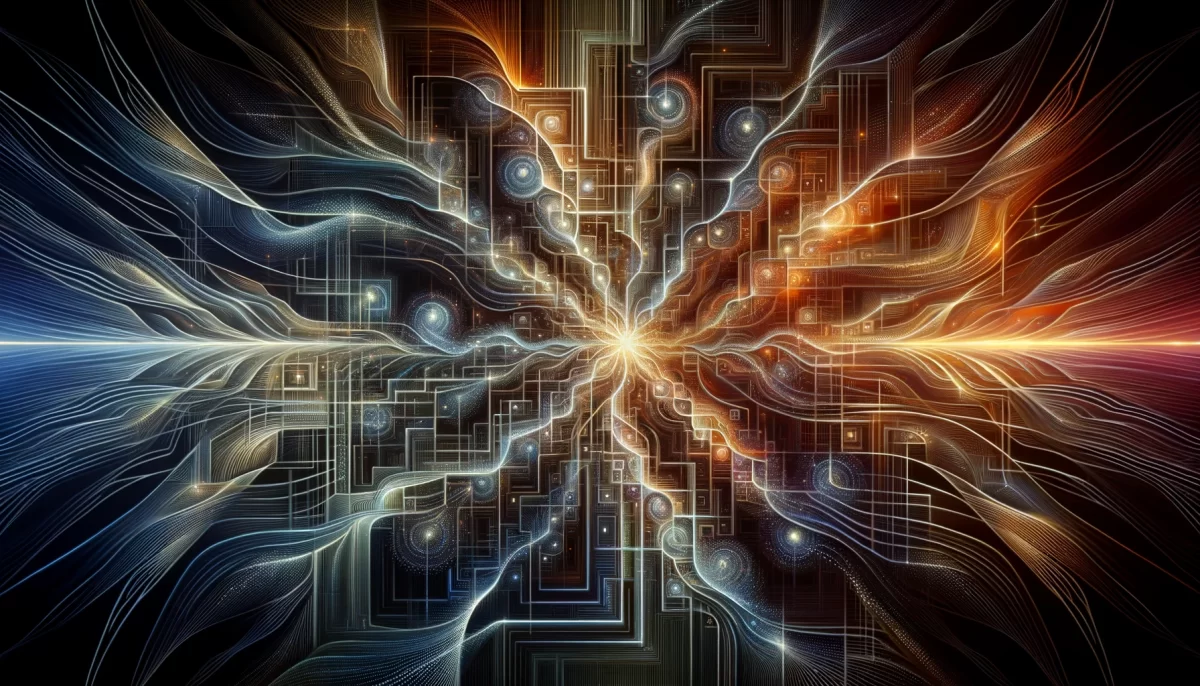
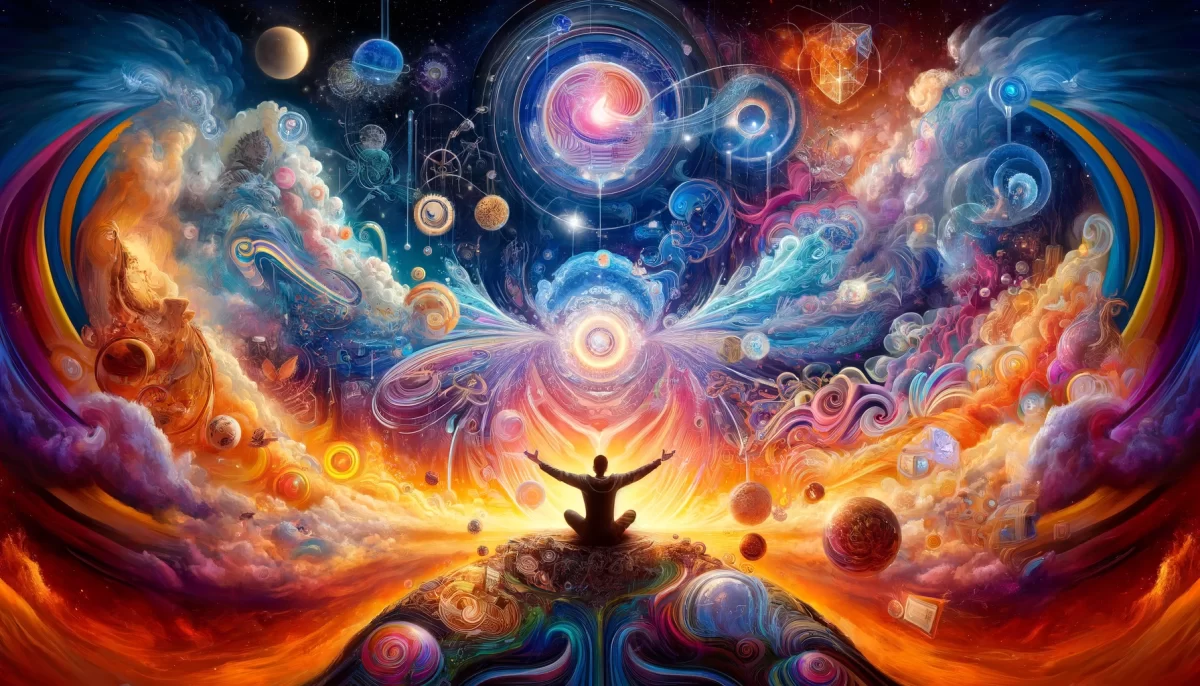

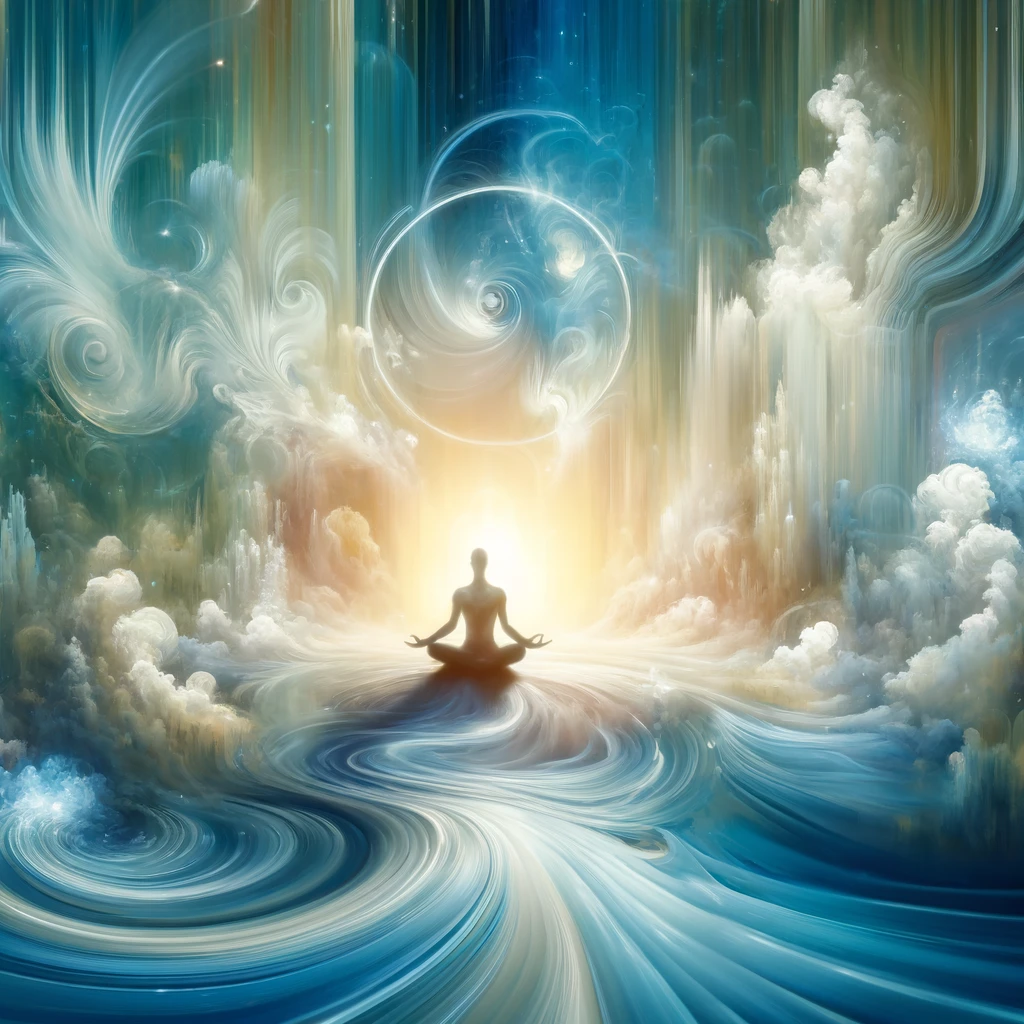

This is an interesting perspective on the concept of hell and the role of emotions in shaping our experience of the world. It suggests that hell is not a physical place or punishment, but rather a state of mind that we create through our own feelings of guilt or remorse.
The idea that our actions have nothing to do with whether we end up in hell or not may be controversial, as many belief systems hold that we are judged based on our behavior and morality. However, this reflection emphasizes the power of our thoughts and emotions in shaping our experience of the world.
It also implies that the concept of heaven and hell may be subjective and personal, rather than objective realities. Our experience of these states may be shaped by our own beliefs, perceptions, and emotions, rather than any external factors.
Overall, this reflection encourages us to take responsibility for our thoughts and emotions, and to recognize the role they play in shaping our experience of the world. It suggests that we can cultivate a sense of inner peace and contentment, regardless of our external circumstances.